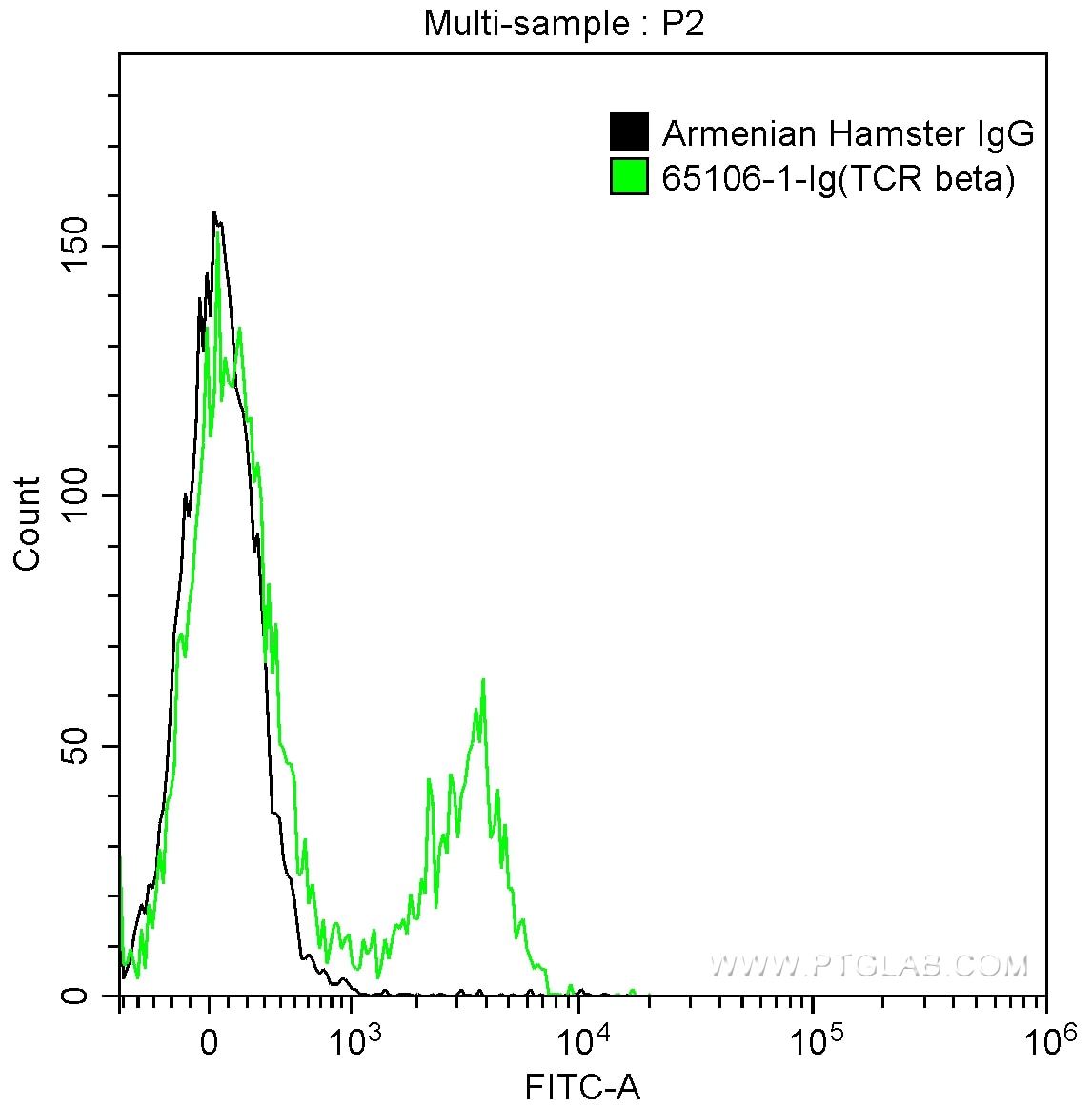Tested Applications
| Positive FC detected in | mouse splenocytes |
Recommended dilution
| Application | Dilution |
|---|---|
| Flow Cytometry (FC) | FC : 0.5 ug per 10^6 cells in 100 μl suspension |
| This reagent has been tested for flow cytometric analysis. It is recommended that this reagent should be titrated in each testing system to obtain optimal results. | |
| Sample-dependent, Check data in validation data gallery. | |
Product Information
65106-1-Ig targets TCR beta in FC applications and shows reactivity with mouse samples.
| Tested Reactivity | mouse |
| Host / Isotype | Hamster / IgG |
| Class | Monoclonal |
| Type | Antibody |
| Immunogen |
Affinity purified TCR from mouse DO-11.10 cells Predict reactive species |
| Full Name | T-cell receptor beta chain |
| Gene Symbol | TCR beta |
| Gene ID (NCBI) | 21577 |
| RRID | AB_2918405 |
| Conjugate | Unconjugated |
| Form | Liquid |
| Purification Method | Affinity purification |
| Storage Buffer | PBS with 0.09% sodium azide, pH 7.3. |
| Storage Conditions | Store at 2-8°C. Stable for one year after shipment. |
Background Information
T-cell receptor (TCR) consists of heterodimeric glycoproteins (TCR alpha/beta or gamma/delta) that demonstrate homology with immunoglobulins (PMID: 2144901). TCR beta is a member of the immunoglobulin superfamily and is expressed on alpha/beta TCR-bearing T cells and thymocytes. The TCR heterodimers are noncovalently associated with CD3. The TCR/CD3 complex of T-lymphocytes consists of either a TCR alpha/beta or TCR gamma/delta heterodimer coexpressed at the cell surface with the invariant subunits of CD3 labeled gamma, delta, epsilon, zeta, and eta (PMID: 1826255). The TCR recognizes antigens bound to major histocompatibility complex (MHC) molecules. TCR-mediated peptide-MHC recognition is transmitted to the CD3 complex, leading to the intracellular signal transduction (PMID: 11985657).




